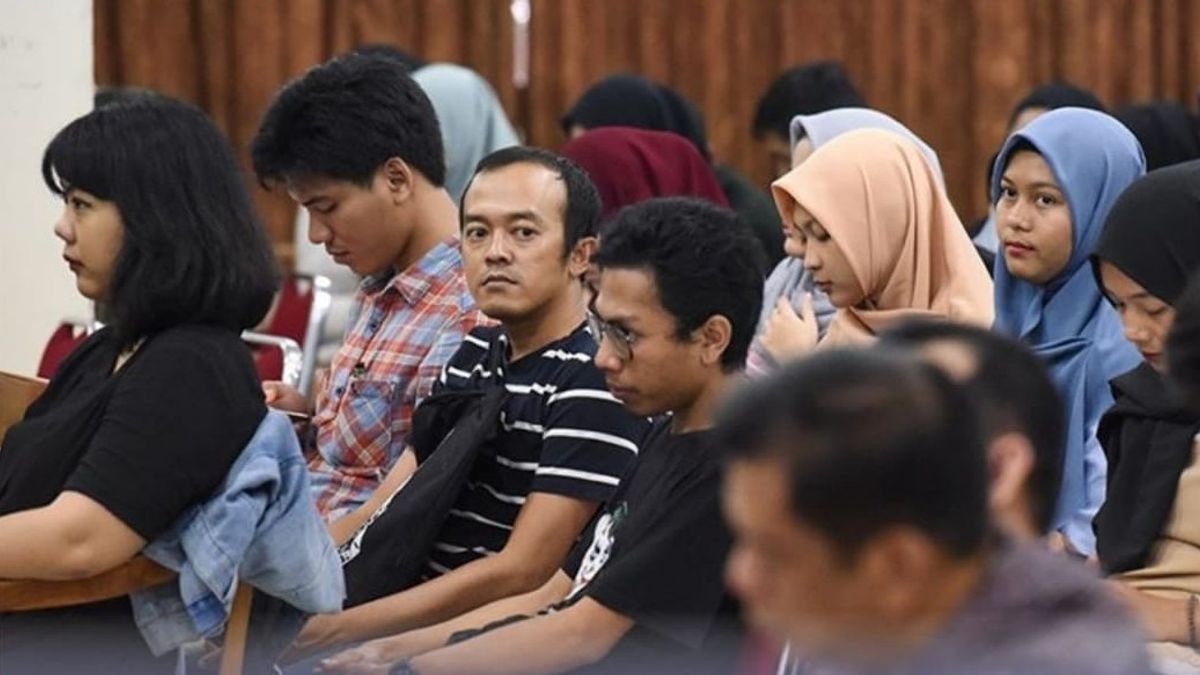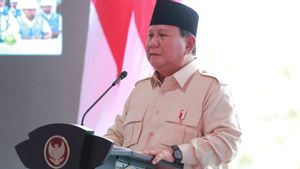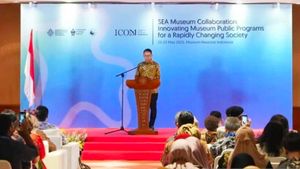JAKARTA - The Business Competition Supervisory Commission (KPPU) suspects that the selection of eight applicators as partners for the Pre-Employment Card is laden with business interests or monopolies. This is because projects with a total value of Rp. 5.6 trillion should be able to involve many applicators using the tender auction system.
This Pre-Employment Card Program is in the spotlight. Because, in addition to online training facilities that were deemed ineffective and right on target in the midst of the corona virus pandemic or COVID-19, the screening of partners to determine the eight applicators involved was not disclosed transparently.
KPPU commissioner Guntur Saragih said that his party would explore the partner appointment system by investigating whether in the process it violated the provisions or not. He emphasized that if later there are indications of violations, the KPPU will bring the findings to the realm of law.
"The management of Pre-Employment Card management for KPPU is very important because of the large value of Rp. 5.6 trillion. Such a market and the potential for business actors to participate should be quite a lot, and KPPU encourages these activities according to the principles of healthy business sense," he said, virtually, in Jakarta, Thursday, April 23.
KPPU, said Guntur, will collect information and examine the partnership relationship between the applicator and the partnership participants. This examination is a way that must be done to find out whether there are efforts to prevent other applicators from contributing to the tender.
"I hope there is no barrier to entry," he said.
On the same occasion, KPPU's Director of Advocacy, Abdul Hakim Pasaribu, said that the policies governing the Pre-Employment Card program are Presidential Regulation (Perpres) Number 36 of 2020 and its derivative Regulation of the Minister of Economy Number 3 of 2020.
Then, he continued, the mandate of Law Number 5 of 1999, gave KPPU the authority to provide advice and considerations to the government regarding unfair business competition.
"Do not let the mechanism of this appointment be unclear. The principles of transparency and openness should be put forward to provide space for public participation that provides the same services," he said.
The judge said that the KPPU's suspicion regarding the existence of monopolistic acts originated from the emergence of information that the government was opening up more space. Therefore, according to the function of the duties, KPPU will confirm again in writing.
In addition, Hakim said, paid online training received by Pre-Employment Card participants can actually be obtained free of charge. The tariff setting scheme will also become one of the KPPU's focuses in investigating this case.
"We should not compare the people who get the Pre-employment Card to pay excessively (excessive)," he said.
Denies that the government appoints a direct partner
Panji Winanteya Ruky, Director of Communications for the Executive Management of the Prakerja Card, denied that the government directly appointed a partner for the Pre-Work Card. He emphasized that in relation to this project there was no sharing of contracts between the government and training institutions.
"There are no orders or distribution of contracts or no projects, because the community must accept it. Maybe there are training institutions that are purchased, maybe some are not dependent on the product and price offered and the quality," said Panji.
To note, the problem is the partnership in the pre-employment card is carried out in the form of cooperation. This is in accordance with the Regulation of the Coordinating Minister for the Economy (Permenko) Number 3 of 2020 concerning Implementation Regulations of Presidential Regulation Number 36 of 2020 concerning Work Competency Development through the Pre-Work Card Program. The regulation was published on March 27.
"When did the cooperation start? After the Permenko was issued," he said.
In addition, Panji ensured that the selection of partners was in accordance with the criteria in the Permenko. Article 26 states, to conduct training, the institution must first be designated as a Pre-Employment Card training institute.
Criteria for institutions that are entitled to provide training include cooperation with digital platforms, organizing training according to the needs of the job market, having a curriculum and syllabus for training programs, providing educators, and having a learning evaluation system.
The English, Chinese, Japanese, Arabic, and French versions are automatically generated by the AI. So there may still be inaccuracies in translating, please always see Indonesian as our main language. (system supported by DigitalSiber.id)













